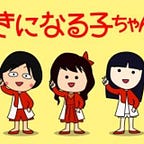The Beast Returns: Inside the World of Kayoko Yoshizawa’s Make-Believe
Some thoughts on the Japanese singer-songwriter’s latest album, Yane Ura Ju
Like any great myth, the origins behind the titular creature of Kayoko Yoshizawa’s latest album, Yane Ura Ju — or in rough translation, “beast in the attic” — scales its larger-than-life identity down to size. “It was something I made up as a child,” the Japanese singer-songwriter explained. “And when I say the attic, it was really just a space on top of my closet.” Her reveal of the truth might dim the mystery surrounding the elusive beast’s den, perhaps atop a castle like the album cover’s graphite landscape. But what remains untouched is her wholesome curiosity, the very fascination driving her fantasy-filled music.
Yoshizawa’s music has tapped into a child’s imagination since she put out her debut mini album, Majo Zukan, or the Witch’s Book, in 2013. The record’s theme came from her time as a young girl who sincerely believed in witches and spent her days training to become one. Later albums similarly looked back to times of youth. Her first full-length from 2015, Houkiboshi Zukan outlined a girl’s adolescence with details culled from her own experience. Sophomore record Tokyo Zekkei, A View of Tokyo, centered on no particular age, though it recreated a panorama of the city through the eyes of a first-timer who looks at the mundane from new angles.
The theme songs to these chronicles sound equally nostalgic and fantastical. Driven by funky brass, twinkling strings and preppy guitar riffs, the music of Yoshizawa sends a breeze of the classic jazz-pop era in the modern age. Not to be dictated by the traditionalism of the animated music, she eagerly foregoes the typical beat of pop-song dialog to play with delivery to drive home a particular mood. She often refers to what she’s creating through her music as stories, and her storybook pop certainly sounds and reads as if it’s jumping straight out of the page.
For Yane Ura Ju, Yoshizawa indulges further into her musical realm of make-believe. A vibrant, fable-like world comes alive in the album’s most entertaining single, “Jigoku Taxi,” or Hell’s Taxi. In the lush song resembling a musical number, a woman hails a cab after dealing with some blood-involved business. “God would hate me for what I’ve done,” she sighs, and then replies back the driver with the song’s punchline: “M‘am, you’re already in Hell.” After a rightful “what?” she rolls into the camp chorus as if to say, “oh, to hell with my sins.”
Other stories may not match the over-the-top fantasy of “Jigoku Taxi.” Yet they’re still products of Yoshizawa’s mind, one which finds peculiar ways to see the ordinary. (“Jigoku Taxi” itself was inspired from her mishearing words from a real cab driver.) A song that taps into a more private scene is “Erabareshi Kodomotachi no Mitsuwa,” or the Secret Stories of the Chosen Children, where kids conspire to escape from an adult-ruled world over the telephone. “Let’s make a secret code for when we meet,” they end the call. The children reunite eventually, but they cross paths only after they’ve well outgrown the age of play. Still, they held on to their secret code despite the years passed: “We can’t go anywhere, but I thought your words were the only thing that were true,” one confesses.
Like the ending of “Erabareshi,” the album strikes a chord when she taps upon the bittersweet effects of time. “The little girl inside of me is falling for the boy in you,” she sings in the chorus of “Neé, Chugakusei,” or “Hey, Middle Schooler.” A crush makes her regress into her younger self, thinking about how this love would’ve worked out had this been during her teen days. Rather than a sweet daydream, though, she reminds how less innocent adult romance unfolds. And she looks back at all the cheesy things she did as a kid to win attention with slight embarrassment, even if she knows it feels much more thrilling.
Stories in Yane Ura Ju reminisces about youth yet Yoshizawa’s characters never fully slips into their nostalgia. Instead the women interacts with it through bit of a distance as they struggle to parse what they want now from what they wanted then. She explores this best in the title track, which reads like an old Japanese folk tale: after a long absence, the album’s name sake returns to the home of the main character, who loved him since she was a little girl. The reunion is more awkward than fulfilling. He still treats her as if she’s a child, and it turns out he’s a little uglier in the inside than how she first saw him. Her fascination of the creature still lives, but it’s an entirely different scenario now.
Yoshizawa tries to bids farewell to her beloved creature to leave the world of fantasy for good in the sincere soft rock finale “Ikkaku Ju,” or One-Horned Beast: “I want to see someone, but I don’t know who; it’s not you, that I know for certain” she sings. But she realizes she can’t part with her childhood companion just yet. Considering just how vital such a metaphor is for the livelihood of not only her music but also her current life, the beast just might be a permanent fixture.
